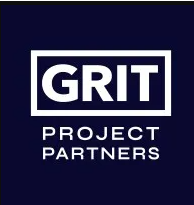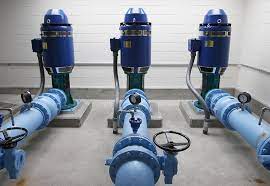In the dynamic realm of construction, project management firms are increasingly turning to modern technology to streamline processes, improve accuracy, and ensure timely delivery of projects. As the construction industry evolves, the integration of innovative technologies is not just an option but a necessity to stay competitive and efficient. This article explores how contemporary technologies are revolutionizing the way construction project management (CPM) firms or project manager companies operate.
Digital Project Management Tools
At the heart of modern construction project management is digitalization. Traditional methods that relied on paper-based systems and manual tracking are being phased out in favor of digital solutions. Software platforms like Autodesk Construction Cloud and Procore offer integrated project management solutions that provide real-time access to project information. These tools facilitate seamless communication and collaboration among stakeholders, ensuring that everyone is on the same page, which is crucial for meeting project deadlines.
Building Information Modeling (BIM)
Building Information Modeling (BIM) technology has transformed the planning and management of construction projects. BIM goes beyond traditional blueprints and creates 3D digital models of a building, which can be analyzed and optimized before construction begins. This technology allows project managers to anticipate potential issues and adjust plans preemptively, reducing the likelihood of costly delays and rework. By enabling a virtual walkthrough, stakeholders can better visualize the project outcome, leading to more accurate scheduling and resource allocation.
Internet of Things (IoT) and Sensors
The Internet of Things (IoT) has found a valuable place in construction project management through the integration of sensors and connected devices on construction sites. These devices collect data related to equipment usage, labor performance, and environmental conditions. By monitoring this data, project managers can optimize workflows, enhance safety, and predict equipment maintenance needs before breakdowns occur, thereby avoiding downtime and delays.
Artificial Intelligence and Machine Learning
Artificial Intelligence (AI) and Machine Learning (ML) are playing pivotal roles in predicting project timelines and outcomes. AI algorithms can process vast amounts of data from past projects to forecast timelines, identify risk patterns, and suggest mitigations. This predictive capability is crucial for project managers to make informed decisions quickly, adhere to schedules, and allocate resources where they are most needed.
Drones and Photogrammetry
Drones equipped with cameras and photogrammetry software are increasingly used to monitor construction sites. They provide aerial views that offer project managers perspectives that are not possible from the ground. This technology can track progress, inspect hard-to-reach areas, and provide accurate measurements. Regular drone inspections help keep projects on track and can highlight discrepancies between the planned and actual progress, allowing for timely corrections.
Virtual Reality (VR) and Augmented Reality (AR)
VR and AR technologies are enhancing the way project managers and teams interact with their projects. VR can simulate complex construction environments for training purposes without the need for physical presence, which speeds up the decision-making process and enhances team preparedness. AR, on the other hand, overlays digital information onto the real-world view of a site, providing workers with valuable real-time insights and reducing errors during the construction phase.
Sustainability through Technology
Modern technologies also promote sustainability in construction project management. Advanced software enables more precise material estimations and waste calculations, leading to less surplus and fewer resource depletions. Additionally, energy-efficient and green technologies are easier to integrate into projects with the help of sophisticated management tools, supporting the industry’s shift towards more sustainable practices.
Summing up, the adoption of modern technologies by project manager companies is not just about keeping up with the times; it is about setting new standards for efficiency and success. These technologies provide comprehensive benefits that encompass better planning, execution, monitoring, and completion of projects.





